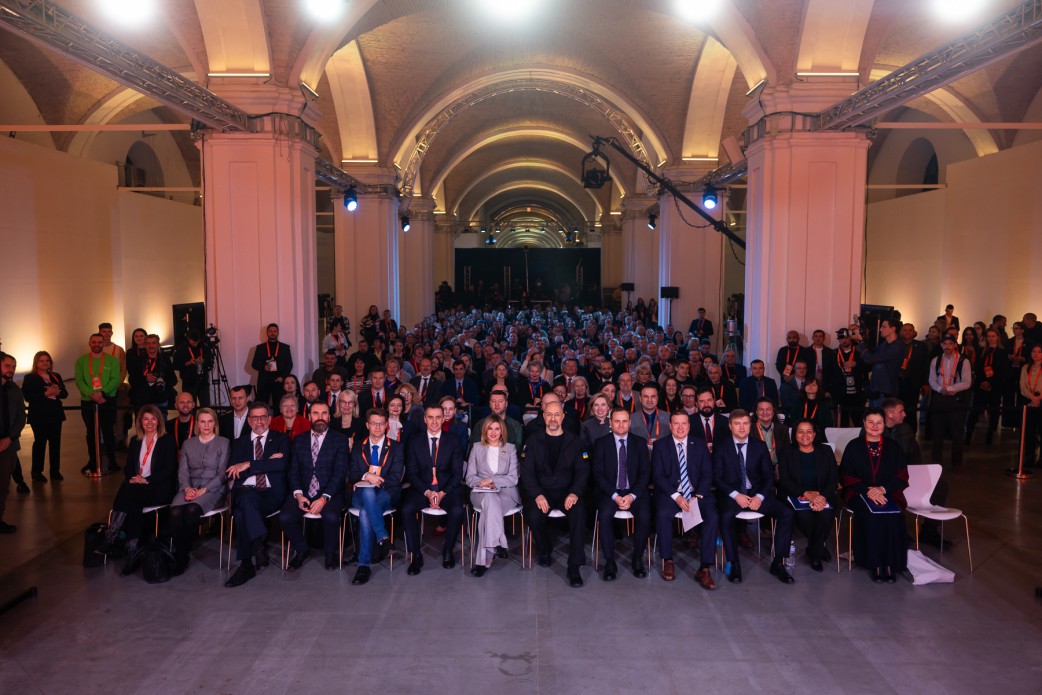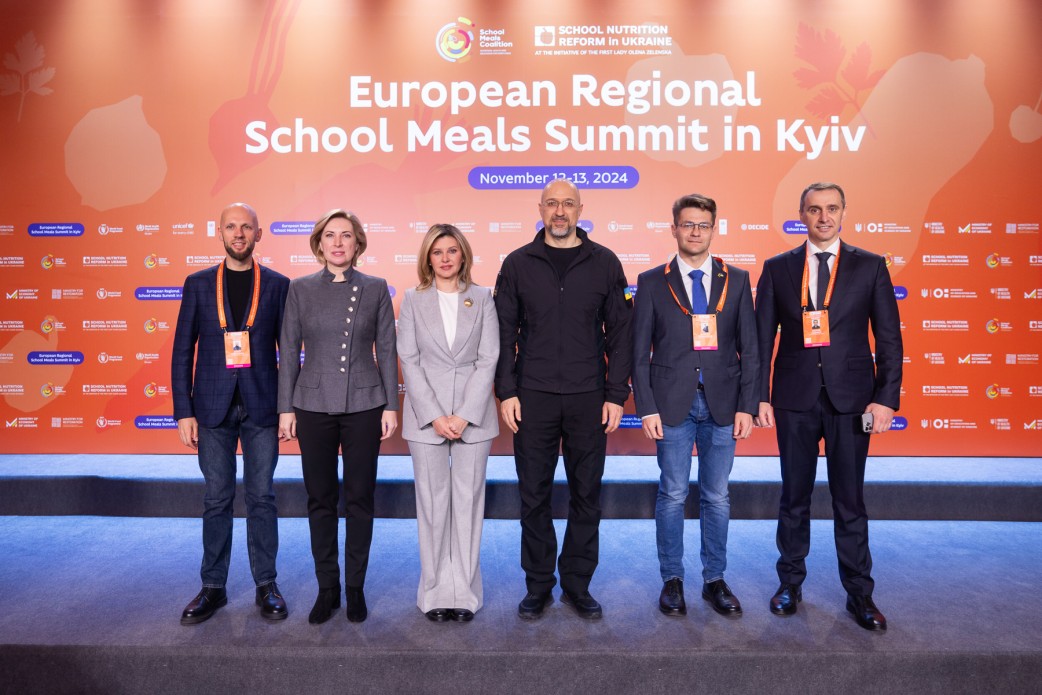On November 12-13, the first European Regional School Meals Summit is held in Kyiv by the School Meals Coalition. The event brought together Ukrainian and European officials, experts and civil society activists to join efforts for strengthening school meals programs in Europe and beyond.
The Summit was opened by the Prime Minister of Ukraine, Denys Shmyhal. He emphasized the importance of School Nutrition Reform as a key element of the country's post-war recovery and development strategy.
“1.8 million secondary school students are provided with meals. About half of them eat free hot breakfasts or lunches thanks to funds provided by the state. Starting this school year, free hot meals are available to all primary school students. This year, the Government has allocated 2 billion hryvnias to the local level,” the Prime Minister said.
Olena Zelenska noted that the Summit has become an important step on Ukraine's path towards integration into international initiatives for school meals development, as well as for the implementation of the relevant reform she initiated.

During the event, the First Lady, together with Minister of Education and Science Oksen Lisovyi and Minister of Health Viktor Liashko, presented the School Nutrition Reform.
“Food is a significant component of success in education and in life. That is why we started by bringing together many different institutions: The Ministry of Health, the Ministry of Education and Science, the Ministry of Economy, representatives of NGOs, including nutrition experts, chefs, doctors, nutritionists, dietitians – and we began to act, step by step,” Olena Zelenska said.
She recalled that in 2019, they started with an audit of half a thousand schools. It showed that 52% of institutions in villages and 40% in cities lacked the necessary premises and equipment for normal cooking, and sugar, fats, bread and semi-finished products prevailed over vegetables, fruits, fish and dairy products.
Based on the results of the work of hundreds of people from the public and civil society sectors and relevant developments, the Cabinet of Ministers approved the Action Plan to reform the School Nutrition System in August 2020. It has become a roadmap for the reform – how to teach children to choose healthy food, modernize outdated canteens, provide funding for the process, and train cooks.
“Today, I am proud that despite the war, standards and regulations have been updated, old kitchens and canteens are being modernized, and the first kitchen factory has been built. Hundreds of cooks and administrators are improving their skills. High-quality and healthy meals are being served even in places where students have not had access to hot lunches for years,” the First Lady said.

Minister of Education and Science Oksen Lisovyi presented four strategic goals of the School Nutrition Reform: strengthening community capacity, modernizing school canteen infrastructure, developing human resources, and promoting healthy eating.
Minister of Health Viktor Liashko spoke, in particular about the new Sanitary Regulations and the Government's resolution setting nutritional standards in schools. He also reminded that communities have developed their own strategies for implementing the reform locally. Now it is being implemented in a cascading manner for each specific school and kindergarten.
The main topic discussed at the Summit was the provision of quality food for schoolchildren in both Europe and Ukraine. Special attention was paid to the positive impact that balanced meals in schools have not only on students' academic performance, but also on their well-being.
The agenda also included the implementation of school nutrition programs at the local level. The participants discussed the role that local authorities can play in this process. In addition, an important focus of the discussion was the improvement of staff working in school canteens and the need to train professionals who can prepare modern, healthy and tasty meals for children.
In total, the Summit was attended by about 500 people from various countries, including representatives of the UN World Food Program, the WHO Country Office in Ukraine, UNICEF, UNDP, and the World Bank, as well as governments and embassies of more than 20 countries, including Norway, Finland, Lithuania, Croatia, Slovenia, Luxembourg, Switzerland, Slovakia, Austria, Brazil, Spain, Moldova, Pakistan, Tajikistan, Czech Republic, Montenegro, Sweden, France, Bulgaria, and the EU.
Reference.
The School Meals Coalition is a global partnership of governments, international organizations, civil society and the private sector committed to providing healthy, nutritious and consistent school meals for all children. The Coalition aims to expand school feeding programs, improve student health and academic performance, and support local economies by purchasing food from smallholder farmers. In addition, the Coalition endeavors to achieve the UN Sustainable Development Goals, particularly the elimination of hunger by 2030.





















